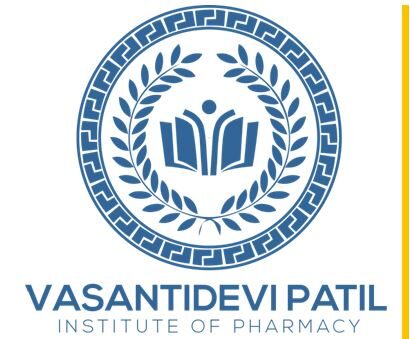Vasantidevi Patil Institute of Pharmacy

Mentorship
About
In order to acquaint and equip the new teachers with the competencies for executing effective academic processes, mentoring by senior and experienced shall form the integral element of professional development.
Mentoring is a key strategy of induction. Mentoring is essentially a formalized relationship that supports and encourages professional learning. In mentoring, a sound and trusting relationship will rely upon the degree of understanding and responsibility shared by the mentoring partners. The establishment of the relationship is crucial and will determine the level and quality of dialogue. Through SWOC analysis and sharing of profiles mentor and mentee derive the opportunities and time to get to know each other for building the foundations for the development of the professional relationship. This will lead to connect the faculty more to the needs of society, industry, R & D and the country as a whole. This phase shall help teachers enhance their practical and field related skills for making teaching learning process applied and occupation oriented.
Mentoring is contributing time, attention, insights, and advice to help a mentee within an environment where they have apt resources and support to develop social, technical and intellectual capital. Mentoring is not an enterprise for those who prefer to work alone, either as individuals or as organizations. It requires partnership and collaboration. This is the sine qua non of an effective program. From the placement of first-time teachers, to finding time for mentoring, to strategies to fund programs, to issues of confidentiality, to the policies that consolidate various aspects of programs, mentoring works well when everyone with a stake in its outcomes is fully involved in its planning and implementation.
Mere providing of resources to a mentee to accomplish a technical / intellectual capital is not mentoring. A mentorship is a relationship between two people where the individual with more experience, knowledge, and connections is able to pass along what he has learned to a junior colleague within a certain field. Mentoring involves personal interactions with the mentee.
Objective
- Help faculty members of HEIs identify and achieve career development and personal growth goals compatible to the objectives of HEIs
- Support building academic leaders who have knowledge, skills and abilities.
- Foster higher levels of engagement and career vision.
- Equip faculty members with the tools necessary to enhance their capability within their current roles
- Create opportunities to meet and partner with stakeholders, or cultural boundaries
- Create a culture that sees mentorship as an effective way of developing proficient individuals
Responsibilities
- Introduce and discuss the concept of mentor-mentee system with the assigned mentees.
- Call a meeting of all a mentees and record their necessary details in designed form, note any specific requirement of any student and discuss with them the complete schedule of further meeting
- Keep a track of attendance, academic performance and behavioral aspect of student by interacting with exam department and the hostel authorities etc
- Support students academically and emotionally
- Contact parents to inform the progress of their ward, whenever required.
- Maintain a record of the progress made by the identified underperforming students and take remedial action whenever required.
- To guide students and also to arrange for remedial teaching, if required.
